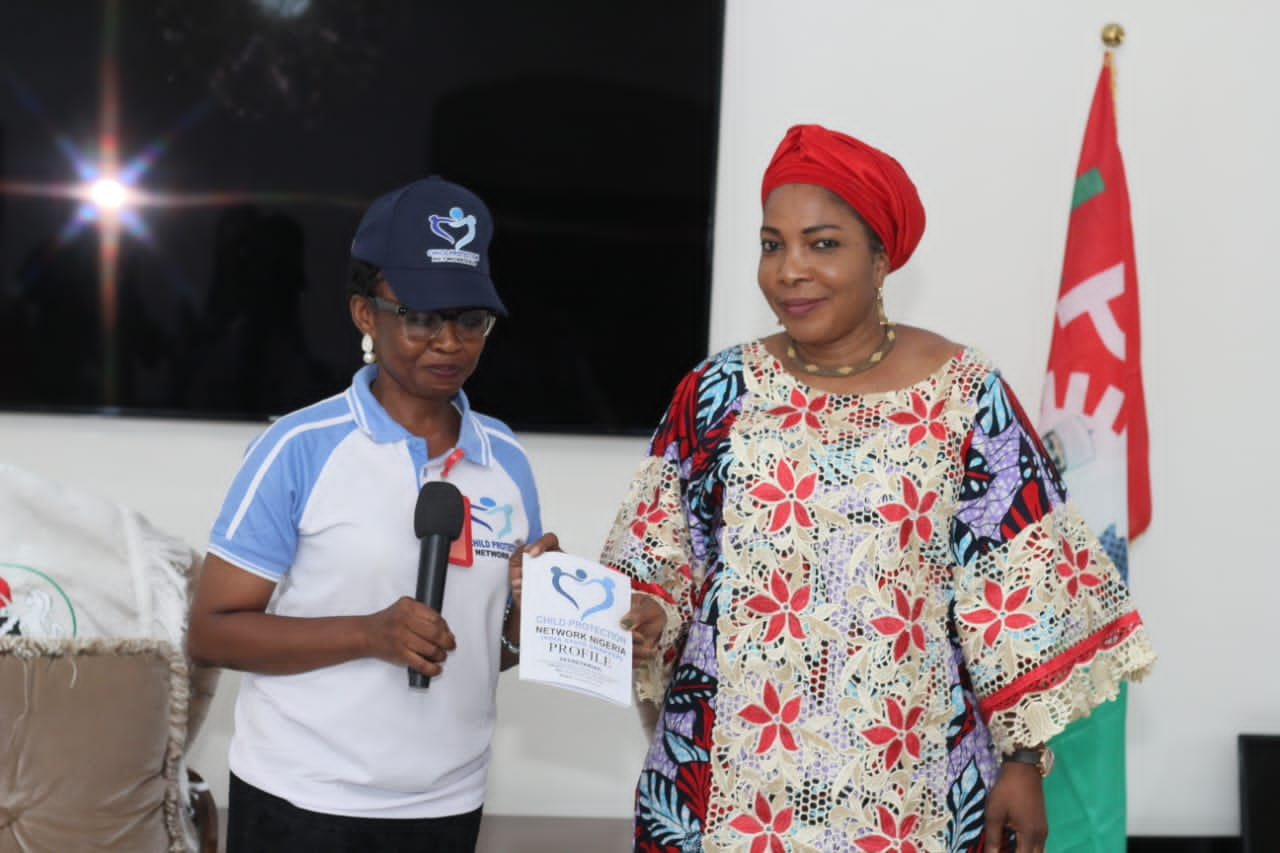Mrs. Priscilla Otti, the wife of the Governor of Abia State, has agreed to partner with the state chapter of the Child Protection Network (CPN) to enhance child protection, uphold children’s rights, and ensure safety from abuse, violence, and exploitation. She also plans to review some legislative frameworks that hinder the rights of children in Abia State.
The Governor’s wife expressed her intentions during a courtesy visit by members of the Child Protection Network to her country home in Nvosi, Isiala Ngwa South Local Government Area of Abia State.
Mrs. Otti described the visit as timely, coinciding with her office’s ongoing efforts to revalidate orphanages and charity homes to identify and eradicate those used as fronts for baby factories and child trafficking.
She pledged to conduct a thorough review of the child rights legislative framework to make it fully operational in the state.
Mrs. Otti assured the state chapter of the Child Protection Network of her support and promised to discuss their challenges with Governor Alex Otti, who she said would help address their concerns and provide solutions.

Earlier, Ambassador Onyinyechi Nwosu, the State Coordinator of CPN, commended Mrs. Otti for the warm reception. Nwosu explained that the Child Protection Network, an initiative of UNICEF established under the supervision of the Federal Ministry of Women Affairs, is a coalition of state and non-state actors dedicated to protecting the rights of children and ensuring their safety from abuse, violence, and exploitation.
In Abia State, CPN is committed to addressing child abuse, exploitation, and neglect while advocating for systemic reforms to guarantee children’s safety and well-being.
“Our team works effectively to protect children, respond to their issues, and advocate for a brighter future for every child,” Nwosu said.
She highlighted some of the challenges faced by CPN in Abia State, including inadequate facilities, lack of funding, legislative gaps, limited mobility, stakeholder capacity deficits, neglect, lack of office space, and inadequate sensitization efforts.
Nwosu appealed for assistance in establishing adequate infrastructure, providing free medical services for survivors, strengthening legislative frameworks, increasing budget allocations, promoting stakeholder engagement, and setting up a task force to identify and combat child traffickers in the state.
Meanwhile, the Commissioner for Vulnerable Groups and Social Protection, Mrs. Ngozi Felix, reaffirmed Abia State’s commitment to protecting children. She highlighted significant efforts to combat baby factories and child trafficking while improving access to justice and protecting children with the support of stakeholders.
“As a responsible administration, we will not relent until the rights of our children are guaranteed and societal ills that undermine them are eradicated,” Felix said.

























